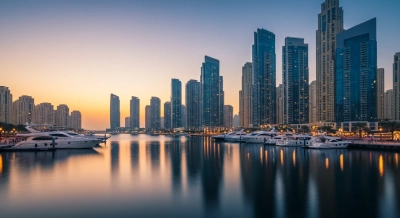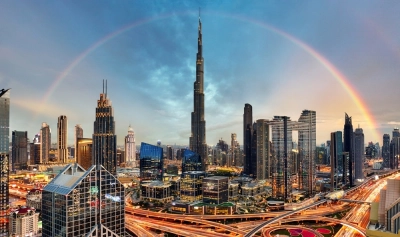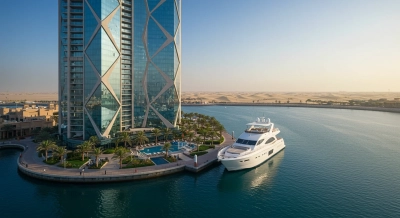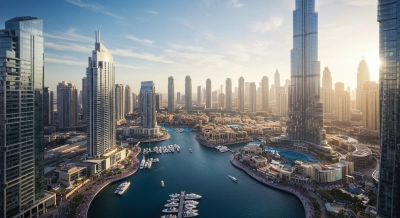The United Arab Emirates (UAE), with an economic size of approximately 600 billion dollars and investment funds worth trillions, is one of the rare countries in the world where there is virtually no taxation. This unique fiscal environment is made possible by the country's abundant natural resources, particularly oil and gas, which generate significant revenues for the government. As a result, the UAE enjoys substantial non-tax revenue, allowing the government to provide high-quality public services and invest in infrastructure without imposing a financial burden on residents and businesses. This tax-free system creates a highly attractive environment for investors, entrepreneurs, and expatriates, distinguishing the UAE from many developed economies that rely heavily on taxation to fund government operations. In contrast, many developed regions, such as Europe and North America, implement high tax rates ranging from 30% to 50% on individual and corporate incomes. While these taxes are primarily used for public services, social welfare programs, and infrastructure development, they also have various economic consequences. For instance, high taxation can discourage productivity and reduce incentives for innovation and investment. Many professionals and businesses may find it challenging to accumulate wealth due to the significant portion of their earnings that goes toward taxes. Additionally, high tax rates often lead to increased government intervention in the economy, as authorities regulate and redistribute wealth through various fiscal policies.
A key disadvantage of high taxation is the necessity of funding a large public sector workforce, which includes civil servants and government employees responsible for managing public services. While tax revenues are reinvested into public goods and services, maintaining an extensive bureaucracy can be costly and sometimes inefficient. Furthermore, progressive tax policies, which impose higher rates on high-income earners, can discourage entrepreneurship and business expansion. In many cases, individuals and corporations seek ways to minimize their tax burden through legal tax planning or, in some instances, by relocating to low-tax jurisdictions such as the UAE. Unlike these high-tax economies, the UAE offers a completely different model. There is no personal income tax on salaries, wages, or business profits, which makes the country particularly attractive for professionals, entrepreneurs, and investors. This absence of taxation creates a more favorable environment for wealth accumulation and reinvestment, encouraging more businesses and individuals to move to the UAE. One of the most notable advantages is the booming real estate market, which has become a major draw for foreign investors. Without capital gains tax or property taxes, real estate investments in cities like Dubai and Abu Dhabi offer higher returns compared to similar investments in high-tax countries.
For example, in 2024 alone, more than 110,000 new real estate investors entered the Dubai market. These investors benefit from the absence of taxation on property transactions, meaning they can sell their properties and exit the market without any deductions or financial penalties. Similarly, there is no taxation on investment profits, making the UAE an appealing destination for global investors looking to maximize returns on their financial assets. The combination of tax-free wealth accumulation, strong economic growth, and world-class infrastructure further enhances the UAE's position as a global investment hub. The government’s ability to sustain this tax-free environment stems from its substantial revenues from oil exports, state-owned enterprises, and various fees and duties on businesses operating within the country. Additionally, the UAE has strategically diversified its economy, with tourism, finance, and technology sectors playing a growing role in generating revenue. As a result, the country does not rely on personal or corporate taxation to fund its development, allowing it to attract a continuous flow of foreign direct investment.
Ultimately, the UAE's unique economic model provides significant advantages for both individuals and businesses. By eliminating income tax, corporate tax (except in certain sectors like banking and oil), and capital gains tax, the country creates an environment where economic activity flourishes. This model not only enhances economic efficiency but also positions the UAE as one of the most attractive destinations for global investors, entrepreneurs, and professionals seeking financial growth and stability. As a result, Dubai and other emirates continue to see a surge in new businesses, investment projects, and high-net-worth individuals relocating to take advantage of the tax-free economy.
© Copyright by Parcel Estates







